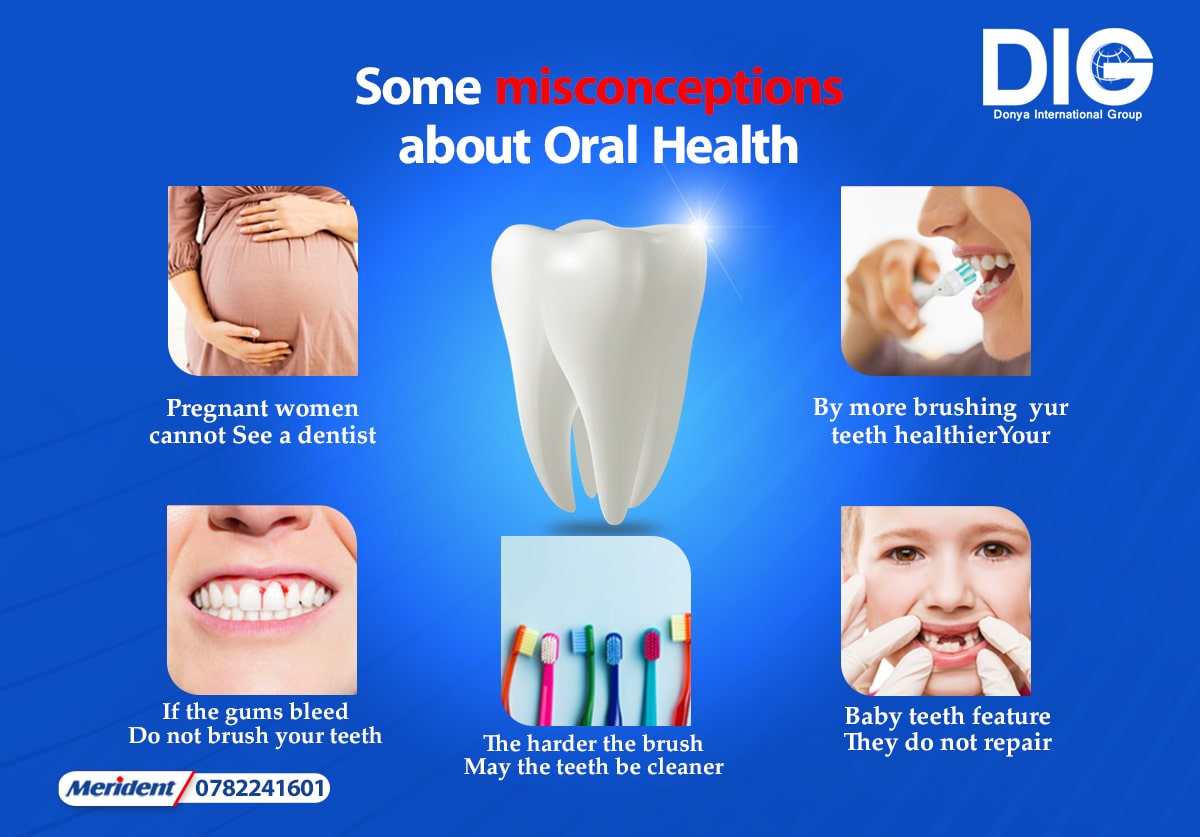


Misconceptions About Oral Hygiene
Oral hygiene is of great importance, but there are many misconceptions in this area that can lead to improper dental care. Here, we address some common misconceptions:
1. Brushing More Often Means Healthier Teeth
One common misconception is that the more you brush your teeth, the healthier they will be. In reality, brushing your teeth more than twice a day can damage the enamel and irritate the gums. The best practice is to brush your teeth twice a day and use dental floss. Additionally, using fluoride toothpaste can help strengthen enamel.
2. Baby Teeth Cannot Be Repaired
This belief is incorrect. Baby teeth can be repaired just like permanent teeth. Maintaining the health of baby teeth is crucial for the proper growth of permanent teeth. Ignoring problems with baby teeth can lead to more serious issues in the future, including negative effects on the alignment and placement of permanent teeth.
3. The Harder the Toothbrush, the Cleaner the Teeth
Using hard-bristled toothbrushes can damage both the enamel and the gums. Contrary to this belief, using soft or medium-bristled brushes is recommended as they are effective enough without causing harm to the teeth and gums. Additionally, proper brushing technique using gentle circular motions is essential.
4. If Your Gums Bleed, You Shouldn’t Brush Your Teeth
Bleeding gums can be a sign of inflammation or gum disease. If you notice bleeding, you should continue brushing and flossing your teeth, but it is also important to visit a dentist to determine the exact cause. Ignoring this issue can lead to the progression of gum disease and more serious oral health problems.
5. Pregnant Women Cannot Visit the Dentist
This belief is incorrect. Pregnant women can and should visit the dentist. Oral hygiene during pregnancy is extremely important as oral problems can affect both the mother's overall health and the baby's health. Dentists can provide safe treatments that do not harm the mother or the baby.
6. Sugar-Free Candies Are Not Harmful to Teeth
A common misconception is that sugar-free candies have no negative impact on teeth. However, it is important to note that some of these products may contain acidic substances that can harm tooth enamel. Additionally, continuous consumption of any type of candy can cause changes in the mouth and increase the risk of tooth decay.
7. Mouthwash Can Replace Brushing and Flossing
Mouthwash can help improve breath and reduce bacteria, but it does not replace brushing and flossing. Brushing and flossing are still the most important ways to remove plaque and prevent tooth decay and gum disease. Mouthwash should be used as a supplement to the daily oral hygiene routine.
Conclusion
Oral hygiene plays a vital role in overall health, and misconceptions can lead to serious issues. By correcting these misconceptions and following proper dental care practices, we can improve our oral health and prevent future problems. To ensure the best practices, always consult with your dentist and benefit from professional advice.